 Your new post is loading...
 Your new post is loading...

|
Scooped by
Gust MEES
|
SO, you are a retired EDUcator, TEACHer, Instructor, LEHRENDER: WHAT to do NOW?!! Well, that was the question I was asking myself when I became retired in 2014. As I did innovation in Modern-EDUcation in my country Luxembourg, there was NO WAY to give that up, BTW! SO, years before my retirement I… Learn more / En savoir plus / Mehr erfahren: https://gustmees.wordpress.com/

|
Scooped by
Gust MEES
|

|
Scooped by
Gust MEES
|
Ist die klassische Berufsausbildung überholt? Um die Ausbildung flexibler gestalten zu können, könnten 36 Level statt drei Ausbildungsjahre eingeführt werden.
Die Digitalisierung erhält immer schneller Einzug in die Ausbildungswelt. Azubis können sich ihre Arbeitsanweisungen mittlerweile aus der Cloud ziehen, Maschinen schon lange mit Tablets bedienen und in sozialen Netzwerken lernen. Und auch die Berufsbilder bleiben vom digitalen Wandel nicht unberührt. Doch nicht allen geht die Transformation von alter zu neuer Ausbildungswelt schnell genug.
Das neue Ausbildungsjahr beginnt zumindest schon ganz im Zeichen der Digitalisierung. Zum 1. August können sich junge Menschen bundesweit erstmals zum Online-Händler ausbilden lassen. "Kaufmann/Kauffrau für E-Commerce" heißt das neue Angebot offiziell. Es soll eine Antwort auf den seit langem boomenden Onlinehandel sein. Eine Antwort, die zehn Jahre zu spät kommt, kritisieren Experten denn auch – und wünschen sich mehr Schnelligkeit in Sachen Digitalisierung. Nichts anderes als die Zukunftsfähigkeit Deutschlands stehe auf dem Spiel.
"Die Ausbildung kommt nicht zehn Jahre zu spät, sondern genau rechtzeitig", sagt dagegen der Vizechef des Bundesverbands E-Commerce und Versandhandel Deutschland, Martin Groß-Albenhausen. Weil sie Fachkräfte forme, die vielleicht das "nächste große Ding im Handel" umsetzen würden. "Wir haben einen Beruf geschaffen, bei dem wir am ersten Tag der Ausbildung jedem Azubi sagen, dass er am Ende der drei Ausbildungsjahre vermutlich einiges, was er in den ersten Monaten lernt, nicht mehr anwenden wird." Der Handelsverband Deutschland geht von mehr als 1000 Onlinehandel-Azubis in diesem Jahr aus. Learn more / En savoir plus / Mehr erfahren: https://www.scoop.it/t/21st-century-learning-and-teaching/?&tag=rubric

|
Scooped by
Gust MEES
|

|
Scooped by
Gust MEES
|
Le potentiel des nouvelles technologies pour l’apprentissage et l’éducation est en grande partie non évalué. Il manque de recherche précise sur le sujet et notamment de recherches sur ce qui se passe dans le terrain et pour chacun des apprenants, et ce à tous les âges de la vie. Il y a peu d’évaluations en dehors de sentiments personnels.
L’une des questions centrales est : a-t-on appris à apprendre ? Et a-t-on appris à apprendre de manière critique à l’heure du numérique ? Car on peut aussi être manipulé par le numérique. Tout moyen de communication est aussi un moyen de manipulation, on l’a vu de Goebbels à Trump ou Daesch. Plus on a des outils de communication efficaces, plus il faut développer l’esprit critique et la capacité à distinguer le bon grain de l’ivraie, ce qui est tout sauf évident même pour un adulte et a fortiori pour un enfant ou un adolescent.
Par contre ce que le numérique permet, par rapport à la radio par exemple, c’est qu’on peut tous produire et partager et que l’on peut facilement documenter ce que l’on fait. On peut échanger plus largement et à toutes les échelles. On a donc cette possibilité, non seulement d’apprendre à lire, écrire mais d’accueillir une production faite par d’autres et de soi-même produire, via l’écrit ou tout un tas d’autres dispositifs que le numérique permet. Learn more / En savoir plus / Mehr erfahren: https://www.scoop.it/t/21st-century-learning-and-teaching/?&tag=modern-education

|
Scooped by
Gust MEES
|

|
Scooped by
Gust MEES
|
“The future of education is digital. We live in an increasingly digital world, where technology is a part of our lives in so many ways. Now more than ever, it is crucial that we incorporate digital technology into education. To prepare students for higher education and future jobs, we must ensure that they are familiar with technology. Administrators who want to prepare their K-12 school for the future of education should look at the ways they use technology in the classroom. Schools that are future-ready are those that blend technology with learning seamlessly and include technology in nearly every lesson.”
I just shared my thoughts on the future of education, but what do my peers think? To find out, we decided to produce an expert roundup on the topic of the future of education. We asked 106 education experts to answer one question: “What are your thoughts on the future of education?” In part 1 of this series, we will focus on the future of K-12. Learn more / En savoir plus / Mehr erfahren: https://www.scoop.it/t/21st-century-learning-and-teaching/?&tag=modern-education
In a fast-moving field like education technology, it’s worth taking a moment to take stock of new developments, persistent trends and the challenges to effective tech implementation in real classrooms. The NMC Horizon 2015 K-12 report offers a snapshot of where ed tech stands now and where it is likely to go in the next five years, according to 56 education and technology experts from 22 countries. Learn more / En savoir plus / Mehr erfahren: https://www.scoop.it/t/21st-century-learning-and-teaching/?&tag=modern-education
Via Nik Peachey

|
Scooped by
Gust MEES
|

|
Scooped by
Gust MEES
|

|
Scooped by
Gust MEES
|
Unsere Vorstellungen von Lernen sind der Hauptgrund, warum wir mit der Bildung nicht vorankommen. Sie sind der Grund dafür, warum wir im Moment digitale Technologien einfach in ein veraltetes Lehrsystem implantieren – und ansonsten weitermachen wie bisher. Wir spielen das alte Lehrer-Schüler-Spiel weiter. Fixiert auf Lehrpläne, Prüfungen und Zertifikate. Das Monopol sorgt für Monokultur. Learn more / En savoir plus / Mehr erfahren: https://gustmees.wordpress.com/2015/11/27/unlearning-the-old-relearning-learning-to-learn-howto/

|
Scooped by
Gust MEES
|
NEW Words, Trends to Know and to LEARN about in 21st Century Are YOU feeling overwhelmed with strange words, NEW trends, when you are reading and following posts, tweets, articles about/and in Social Media!? Well, I can understand YOU!!! There are SO MUCH, if I wouldn't do curation, I wouldn't understand it anymore… Learn more / En savoir plus / Mehr erfahren: https://gustmees.wordpress.com http://www.scoop.it/t/21st-century-learning-and-teaching

|
Scooped by
Gust MEES
|
What is creativity?
Although creativity is often defined in terms of new and useful products, I believe it makes more sense to define it in terms of processes. Specifically, creativity involves cognitive processes that transform one’s understanding of, or relationship to, the world.
A society thrives when individuals are given the space to create or imitate ideas.
There may be adaptive value to the seemingly mixed messages that teachers send about creativity. Creativity is the novelty-generating component of cultural evolution. As in any kind of evolutionary process, novelty must be balanced by preservation.
In biological evolution, the novelty-generating components are genetic mutation and recombination, and the novelty-preserving components include the survival and reproduction of “fit” individuals. In cultural evolution, the novelty-generating component is creativity, and the novelty-preserving components include imitation and other forms of social learning.
It isn’t actually necessary for everyone to be creative for the benefits of creativity to be felt by all. We can reap the rewards of the creative person’s ideas by copying them, buying from them or simply admiring them. Few of us can build a computer or write a symphony, but they are ours to use and enjoy nevertheless.
Learn more / En savoir plus / Mehr erfahren: http://www.scoop.it/t/21st-century-learning-and-teaching/?&tag=Creativity https://gustmees.wordpress.com/?s=creativity
|

|
Scooped by
Gust MEES
|
What are the kind of things a 21st century teacher needs to know and be able to do? What about 21st century students? What education technology works, and what is a waste of time? What would a checklist for 21st century teaching look like?
Does ‘21st-century teaching’ even make sense to use as a phrase anymore? If not, do we just say ‘teaching’? Does that fit our needs to innovate our collective profession to meet a modern circumstance?
These are among the questions today’s teachers have to face daily–in the classroom, mass media, professional development, and more. These conversations can get complex, opinionated, stuffed with rhetoric, and downright overwhelming at times. In response, Sylvia Duckworth has made consistent contributions to this conversation by creating colorful illustrations that communicate many of these ideas in easy-to-skim, easy-on-the-eyes, tempting to pin and share graphics. Learn more / En savoir plus / Mehr erfahren: https://www.scoop.it/t/21st-century-learning-and-teaching/?&tag=modern-education

|
Scooped by
Gust MEES
|
When students are provided consistent opportunities to develop and discuss complex questions, they’re empowered with knowledge, curiosity, and intellectual courage. We can make our classrooms places that encourage students to keep asking questions—which are the foundation of learning.
CREATING A CLIMATE FOR QUESTIONING
Modeling questioning strategies that get all students involved allows students to develop confidence in their own ability to craft meaningful questions and share their responses. We also need to establish classroom procedures for respectful dialogue so that students feel safe in sharing their thinking with their peers.
I indirectly model questioning strategies by carefully considering the questions I ask. I set up the year with a few questions that are then discussed throughout the year. Through seminar discussions and reflective writing in the spring, for example, I use questions such as “How does where you live impact how you live?,” “How do humans continue to progress in a diverse world?,” and “How does constructive conversation cultivate empathy and promote participation in local and global communities?” to discuss content as well as to make connections to the world.
Students consider these questions as they participate in the Spotlight Challenge, a design thinking project I created to facilitate opportunities for students to conduct research, craft speeches, and call their peers to action. Consistently making these connections helps create a climate in which students become accustomed to questioning everything. Learn more / En savoir plus / Mehr erfahren: https://www.scoop.it/t/21st-century-learning-and-teaching/?&tag=questions

|
Scooped by
Gust MEES
|
Kuhn's idea was, itself, revolutionary in its time. It caused a major change in the way that academics talk about science; and, so, it may be that it caused (or was part of) a "paradigm shift" in the history and sociology of science. However, Kuhn would not recognize such a paradigm shift.

|
Scooped by
Gust MEES
|
World Class
How to Build a 21st-Century School System
In a world where the kind of things that are easy to teach and test have also become easy to digitise and automate, it will be our imagination, our awareness and our sense of responsibility that will enable us to harness the opportunities of the 21st century to shape the world for the better. Tomorrow’s schools will need to help students think for themselves and join others, with empathy, in work and citizenship. They will need to help students develop a strong sense of right and wrong, and sensitivity to the claims that others make. What will it take for schools to be able to do this? Andreas Schleicher, initiator of the OECD Programme for International Student Assessment (PISA) and an international authority on education policy, has accompanied education leaders in over 70 countries in their efforts to design and implement forward-looking policies and practices.
While improvement in education is far easier to proclaim than achieve, in this book Schleicher examines the many successes from which we can learn. This does not mean copying and pasting solutions from other schools or countries, but rather looking seriously and dispassionately at good practice in our own countries and elsewhere to understand what works in which contexts. Trained in physics, Schleicher offers a unique perspective on education reform: he convincingly argues that it should not necessarily be less of an art, but more of a science. “No one knows more about education around the world than Andreas Schleicher. Full stop. For the first time, he's collected 20 years worth of wisdom in one place. World Class should be required reading for policy makers, education leaders and anyone who wants to know how our schools can adapt for the modern world – and help all kids learn to think for themselves.” – Amanda Ripley, author of The Smartest Kids in the World, a New York Times bestseller “[Schleicher]…grasps all the key issues, and does so through keeping his ear to the ground and by working out solutions jointly with a variety of leaders at all levels of the system, and in diverse societies” – Michael Fullan, Global Leadership Director, New Pedagogies for Deep Learning “Every visionary leader who is serious about improving student learning should add the data-driven World Class: Learn more / En savoir plus / Mehr erfahren: https://www.scoop.it/t/21st-century-learning-and-teaching/?&tag=OECD

|
Scooped by
Gust MEES
|
Flipping the curriculum could help us meet the demands of the artificial-intelligence era
Technologies such as artificial intelligence, robotics, and biotech are redefining what it means to be human—and employable.
Jobs are disappearing as automation replaces the need for people. New occupations are emerging that demand competencies that can transfer across the multiple assignments workers will experience in their lives. The disappearance of global boundaries presents opportunities—and risks—for all workers.
These changes demand a significant, ambitious evolution in how we prepare students for their future in a world that's increasingly volatile, uncertain, complex, and ambiguous. We need a relevant and modernized education. Learn more / En savoir plus / Mehr erfahren: https://www.scoop.it/t/21st-century-learning-and-teaching/?&tag=modern-education

|
Scooped by
Gust MEES
|
Unstructured learning is an authentic real-world way of learning. That’s because the real world itself doesn’t have neat compartments or set disciplines for success. It demands adaptability, patience, and a willingness to learn and to use what is learned in the moment. Most of all, it requires us to take full responsibility for what we learn. It’s time to play and to let go of rigid teaching in favour of unstructured learning. For this to happen, teachers have to foster trust in their students. They have to be willing to take a step back and put a little slack on the reins of traditional pedagogy. In short, we need to let things get a little messy. Ease into it—it’s a bold step and it will transform everything. Learn more / En savoir plus / Mehr erfahren: https://www.scoop.it/t/21st-century-learning-and-teaching/?&tag=modern-education
Via Nik Peachey
If schools are supposed to be training the workers of the future, the growing consensus is that most of them are not doing a very good job of it. In a trend that seems long overdue, technology-based companies are increasingly turning inward to bridge the gap between the skills they need employees have and the skills they’re actually graduating from college with. In 8 Critical Skills For A Modern Education, we offered one view of what ‘modern workplace’ skills might look like, and have argued many times that true ’21st-century learning’ should change what work looks like all together. (Nevermind that, in our estimation anyway, the purpose of school is not job training.) Still, companies (for now, anyway) need human workers with certain skills that, increasingly, they just don’t have. It’s nearly 2018, and the concept of 21st-century skills is more than two decades old now. Learn more / En savoir plus / Mehr erfahren: https://gustmees.wordpress.com/2015/10/29/if-i-would-own-a-company-what-skills-would-i-expect-from-my-workers-in-21st-century/ https://gustmees.wordpress.com/2015/07/19/learning-path-for-professional-21st-century-learning-by-ict-practice/
Via Stephania Savva, Ph.D, Ivon Prefontaine, PhD
"A glimpse into America’s future labor market suggests a boom in health care jobs, soaring employment in clean energy and a continued decline in manufacturing positions. "Those are among the key takeaways from 10-year employment projections released last week by the Bureau of Labor Statistics (BLS). The findings offer more evidence of widening socioeconomic inequality, the migration of jobs to the service sector and a drop in the number of middle-class jobs for workers with only a high school diploma. "This unfolding economic shift is challenging educators to shape curricula that will prepare students for positions requiring an elusive combination of soft skills — the ability to solve problems, communicate effectively and work with others — along with technical capacities.
“The skill requirements in jobs have increased remarkably in their depth and breadth,” said Anthony P. Carnevale, research professor and director of the Georgetown University Center on Education and the Workforce. “The pace of change is outrunning the ability of educators to provide those skills and to qualify people for entry-level jobs.”
Learn more / En savoir plus / Mehr erfahren: https://gustmees.wordpress.com/2015/07/19/learning-path-for-professional-21st-century-learning-by-ict-practice/ https://gustmees.wordpress.com/2017/09/27/the-change-trend-in-education-to-make-educators-teachers-more-professional/
Via Jim Lerman, Ivon Prefontaine, PhD

|
Scooped by
Gust MEES
|

|
Scooped by
Gust MEES
|
If you work in social media, explaining your job can be a frustrating experience - especially to family members who probably assume that you just use Facebook all day.
For Community Managers, in particular, there tends to be a lot of confusion over exactly what the role entails.
To clear things up, I thought I’d delve into the world of community management and find out why it’s becoming increasingly important for brands of all kinds.
Here’s a beginner’s guide.
What does a community manager do?
The role of a community manager is to act as the bridge between a brand and the community it is aiming to create (i.e. a loyal audience or group of core consumers connected by a similar interest).
They should be the brand’s ambassador, engaging with potential customers and building relationships with existing ones. They are also focused on gauging sentiment around the brand, using social listening tools in order to monitor feedback and engagement. Learn more / En savoir plus / Mehr erfahren: http://www.scoop.it/t/21st-century-learning-and-teaching/?&tag=Digital+Skills

|
Scooped by
Gust MEES
|
|



 Your new post is loading...
Your new post is loading...

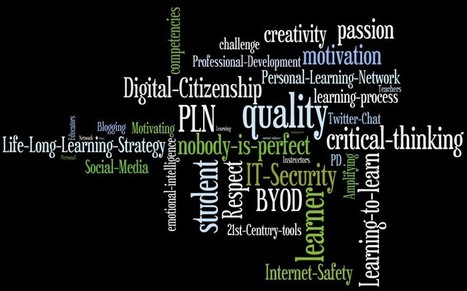



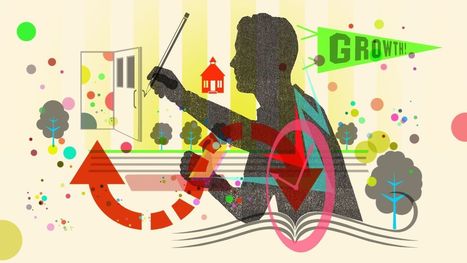

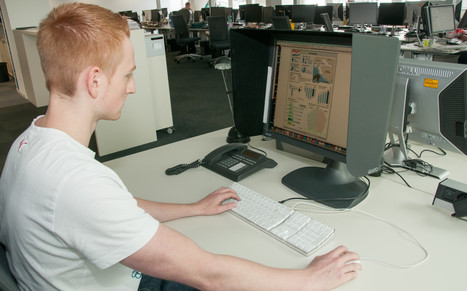
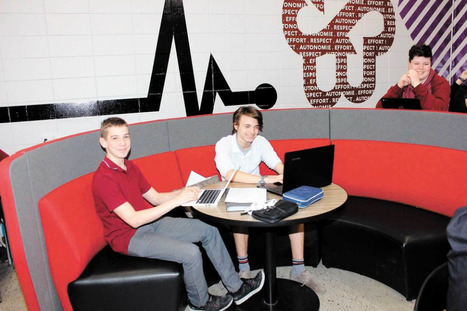
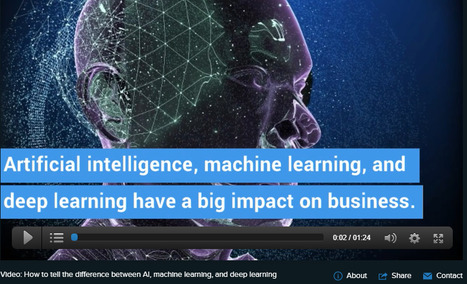
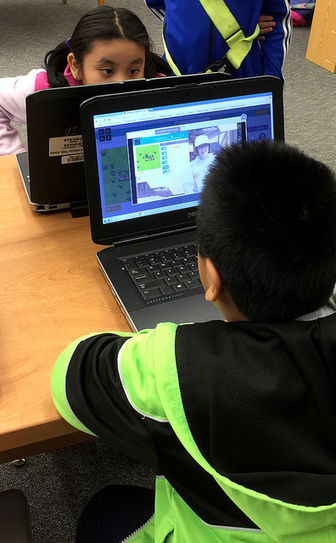
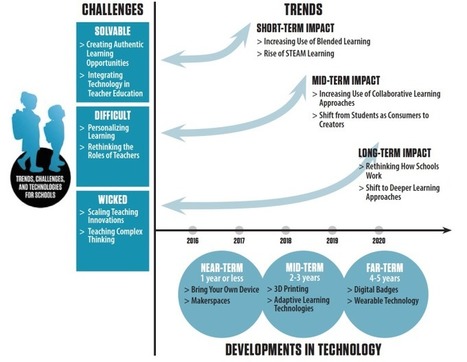

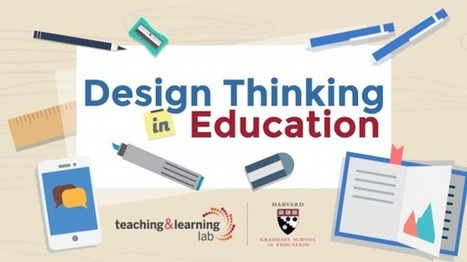

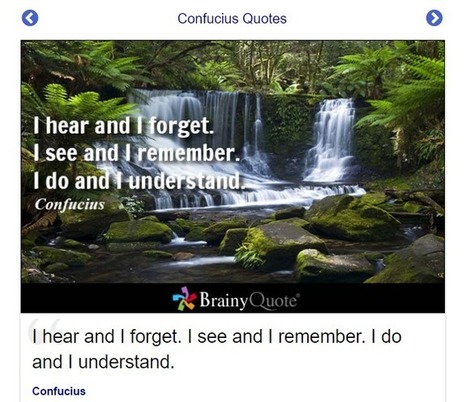
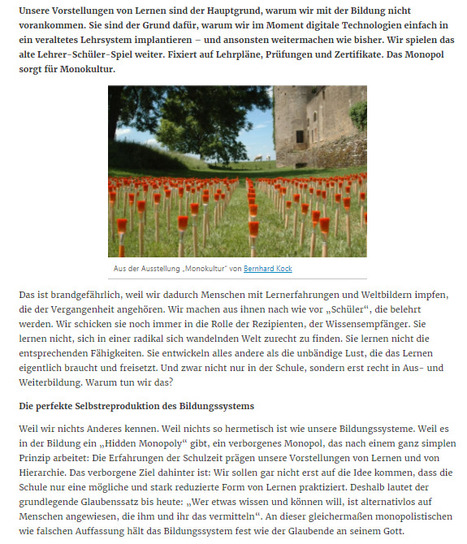

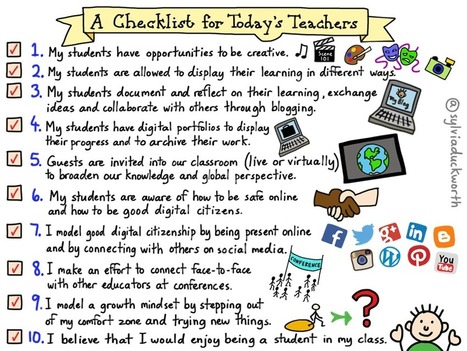

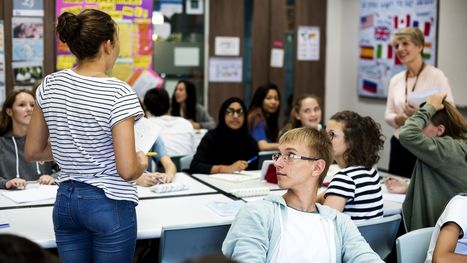


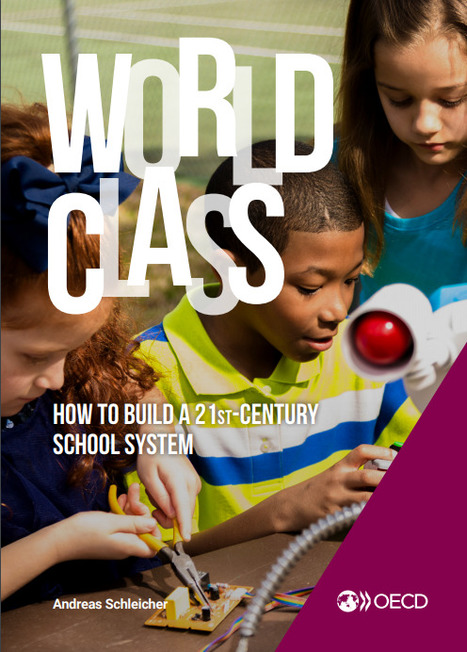

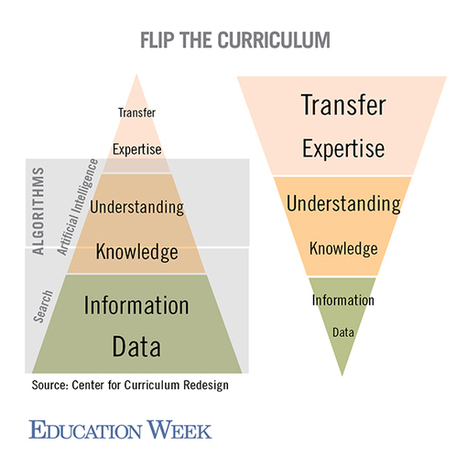

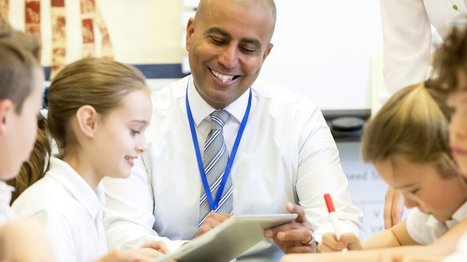



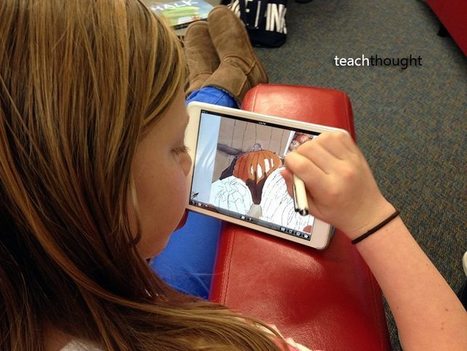

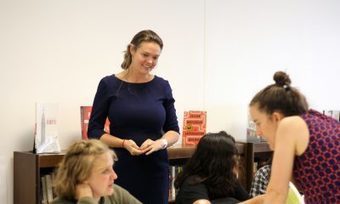
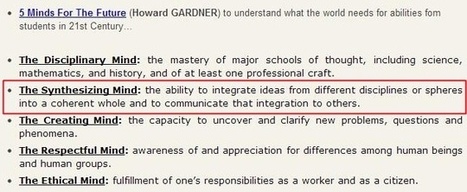
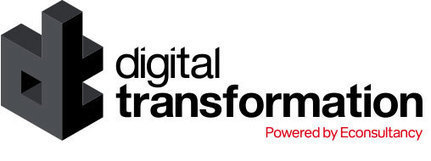
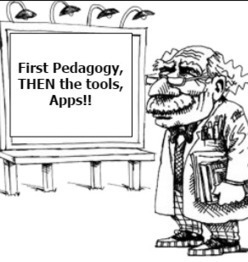





SO, you are a retired EDUcator, TEACHer, Instructor, LEHRENDER: WHAT to do NOW?!! Well, that was the question I was asking myself when I became retired in 2014. As I did innovation in Modern-EDUcation in my country Luxembourg, there was NO WAY to give that up, BTW! SO, years before my retirement I…
Learn more / En savoir plus / Mehr erfahren:
https://gustmees.wordpress.com/